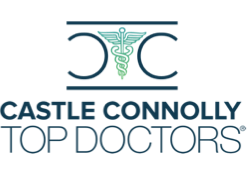What is Robotic Surgery?
Robotic surgery is a term used for technological developments that use robotic systems to aid in surgical procedures. Robotically-assisted surgery has the potential to help overcome the limitations of minimally-invasive surgery, and to enhance the capabilities of surgeons performing some types of open surgery. To date, robotic surgery has had its biggest impact in Urological (Prostate) surgery, and general surgery. The applications in Spine surgery have been very limited to date, but we continue to monitor and research this technology.
With robotically assisted surgery, the surgeon uses a remote manipulator to control the robotic arms that carry out the movements of the surgery. The advantage of this is to allow for very fine and controlled movements in a tight and inaccessible space, and for potentially improved visualization with the miniature camera systems that accompany the robotic arms, examples of such systems include the DaVinci Robot platform. Robotic surgery has been criticized for its expense, by one estimate costing $1,500 to $2000 more per patient. [1] However, this advanced technology allows surgeons to perform general exams as well as complex gynecological, cardiothoracic, and urological procedures with a minimally invasive approach.
Potential benefits of robotic surgery
In general, robotic surgery can mean less trauma on the body, minimal scarring, less pain, and a faster recovery. Don’t be afraid to ask questions or go for a second opinion, as there are many misconceptions about surgery that your physician can clear up. To date, robotic techniques have not had a major impact on the performance of spine procedures, but there are some techniques being developed that may assist in placing spinal instrumentation. As with any surgery, there are basic routines to follow before the procedure:
Before surgery:
- Patients shouldn’t intake fluids or food 8 hours before surgery
- Patients should cleanse their bowels with an enema or laxative
- If you’re a smoker, it’s recommended you quit before surgery; the longer you abstain from smoking, the better your chances of a healthy recovery
- Surgery may affect the medications you take on a regular basis, ask you primary medical doctor whether or not it is advised for you to take it on the day of your surgery
After surgery:
- With any surgery there’s a risk of infection from surrounding patients in the hospital
- Patients may experience develop breathing problems with anesthesia
- Some patients have adverse reactions to post-op medication
Have you or a loved one ever experienced or considered robotic surgery? Tell us about your concerns or questions on Facebook.










